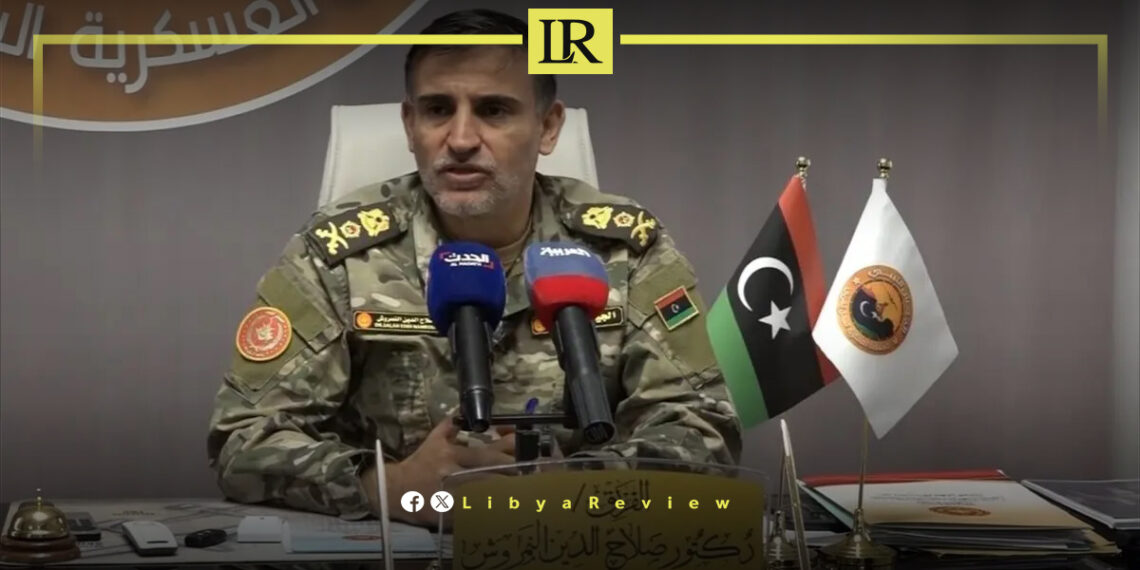The National Human Rights Commission in Libya has issued a statement holding Salah Namroush, Commander of the Western Coastal Military Zone, legally accountable for the recent armed clashes and violence in the city of Ajilat.
In the statement, the commission said: “We hold the Commander of the Western Coastal Military Zone fully responsible for the actions of the 103rd Infantry Battalion in their recent attack.”
The commission reported that renewed clashes and violence have erupted in the Ajilat area, specifically in the municipality of Al-Jadida, west of Tripoli. Several parts of the city have been affected.
According to the commission, the clashes involve the 103rd Infantry Battalion, also known as “Al-Silaa,” and a faction led by Hatem Al-Fahri. Local sources indicate that the clashes continue in areas such as Ras Youssef checkpoint, Al-Jadida, and Jinan Atiya, with both light and medium weapons in use. Reports suggest injuries on both sides.
The commission highlighted the dire humanitarian situation, stating that many families remain trapped amid the fighting, particularly in residential areas such as the Republic Bank road, the public square, and Municipality Street in Al-Jadida.
The statement criticized the failure to consider the safety of civilians, who have been left in harm’s way, as their neighborhoods have turned into battle zones. The commission called for urgent measures to ensure the protection of civilians, in line with international humanitarian law.
Furthermore, the commission urged citizens in conflict zones to stay indoors, avoid windows and main entrances, and remain vigilant until the situation stabilizes.
The commission also appealed to the warring parties to open safe humanitarian corridors, allowing emergency teams, ambulances, and the Red Crescent to evacuate trapped families and provide medical assistance to the wounded.
Libya has been in chaos since a NATO-backed uprising toppled longtime leader Muammar Gaddafi in 2011. The county has for years been split between rival administrations.
Libya’s economy, heavily reliant on oil, has suffered due to the ongoing conflict. The instability has led to fluctuations in oil production and prices, impacting the global oil market and Libya’s economy.
The conflict has led to a significant humanitarian crisis in Libya, with thousands of people killed, and many more displaced. Migrants and refugees using Libya as a transit point to Europe have also faced dire conditions.
The planned elections for December 2021 were delayed due to disagreements over election laws and the eligibility of certain candidates. This delay has raised concerns about the feasibility of a peaceful political transition.
Despite the ceasefire, security remains a significant concern with sporadic fighting and the presence of mercenaries and foreign fighters. The unification of the military and the removal of foreign forces are crucial challenges.


